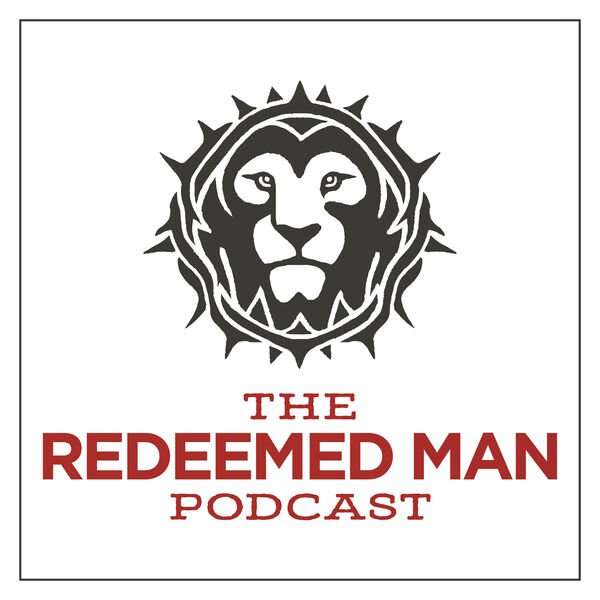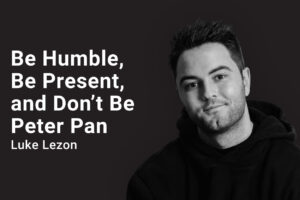A Covenant, Not a Contract

More About The Podcast
- About
- Show Notes
About
After 28 years of marriage, Rebekah and Gabe Lyons have discovered some hard-earned truths—like not clinging too tightly to personal preferences, the importance of understanding each other’s pasts, and even the hidden gifts that are sometimes found in negative emotions. They’ve gathered these lessons into their new book, The Fight for Us. This week, Rebekah and Gabe talk with Nate Dewberry about the big and small challenges couples face, from stopping small disagreements before they spiral, to what a husband can do when he hears the words, “I just don’t think we’re connecting.”
Show Notes
Segment chapters
0:00 How Rebekah and Gabe met—and what they know now that they wish they’d known then
5:27 What prompted them to write The Fight for Us
9:13 Working on yourselves individually so that you’re stronger as a couple
17:47 Advice for husbands who’ve been told, “We’re just not connecting”
22:07 What it means to “choose covenant over consumerism”
26:29 The cultural “headwinds” against marriage, and how we can counteract them
30:32 Closing thoughts: How community has aided Rebekah and Gabe’s marriage
Snippets/excerpts
2:35 to 4:43—What Rebekah and Gabe have learned that they wish someone had told them before they got married
7:32 to 9:12—What Rebekah and Gabe are trying to teach other couples through their new book, The Fight for Us
9:44 to 11:38—The importance of looking back—at both your “origin story” and your spouse’s—to move toward understanding and healing
19:59 to 21:47—Don’t view your emotions as bad; treat them like gifts and try to understand how they can spur you to make meaningful choices
23:14 to 25:00—Treat marriage as a covenant to be held sacred, not as a contract that eventually runs its course
Discussion
- Rebekah says that, “If you like each other, there’s a better chance you’re going to stay loving each other.” In general, how well do you like your spouse and enjoy spending time with her? Do you feel like you’re “married to your best friend”
- Consider your parents’ relationship—did they seem to like each other? Did they ever appear to just be “going through the motions”? How did that make an impact on you as a child, and how has it affected your attitude toward relationships as an adult?
- What was the first major difficulty or challenge you and your spouse experienced together? Did facing that challenge together make you stronger as a couple, or did it drive you apart? How did you work (or how are you currently working) to heal those rifts?
- Can you think of a time in your relationship when a small difference of opinion or perspective escalated into a major argument? Why did it feel so important to you in that moment to hold on to your viewpoint and convince your spouse you were right? Looking back, what would you do differently if you had the chance to navigate it again?
- How well do you know your spouse’s background and upbringing, and how well do they know yours? Has there ever been something you discovered about the way they were raised or what they experienced as a child that inspired an “aha moment” and helped you understand/relate to them much better?
- How often does your spouse say something like, “We’re just not connecting”? When that happens, how do you typically respond? Does it prompt any introspection on your part, or do you just try to deflect it as nagging or insignificant?
- According to Rebekah’s definitions, do you treat your marriage as a covenant or t a contract? What parts of your marriage do you hold absolutely sacred? Are there any aspects that seem more routine or transactional – things you tend toout of obligation rather than genuine care? What steps could you take to bring more intentionality into those parts of your relationship? Matthew 19:4-6
Other resources
The Lyons’ book, The Fight for Us
The Voice of the Heart: A Call to Full Living by Chip Dodd
Search Podcasts
Enjoyed This Episode?
Discover more inspiring episodes of The Redeemed Man Podcast wherever you tune in!
Share This Podcast
Sign up for updates
When you sign up for this mailing list, you’ll receive regular updates for The Redeemed.
More From The Redeemed Man Podcast

Be Humble, Be Present, and Don’t Be Peter Pan
Luke Lezon, the lead pastor at Lifebridge Church in Orlando, talks about his unusual path to church leadership and how it’s shaped his life.

What God Has Been Building Among Us
The Redeemed welcomes a new year by looking back at the developments, guests, and stories that made a big impact in 2025.

A Christmas Message from The Redeemed
Christmas means something different for each of us. For some it’s full of joy. For others, it’s a hard and lonely season. No matter where you find yourself, we want you to hear this: You are loved, and you’re not walking through life on your own.
Paul Amos recorded a short Christmas message to speak hope, encouragement, and the truth of what Jesus’ birth means for us today. Praying this season brings you rest, joy, and renewed hope.
Take a moment to watch the message.









